Dandruff is a common scalp condition that affects many people. It is characterized by white flakes of skin that fall from the scalp and can be accompanied by itching and irritation. While there are many over-the-counter treatments available, some people prefer to use natural remedies. Baking soda is one such remedy that has gained popularity for its effectiveness in treating dandruff.
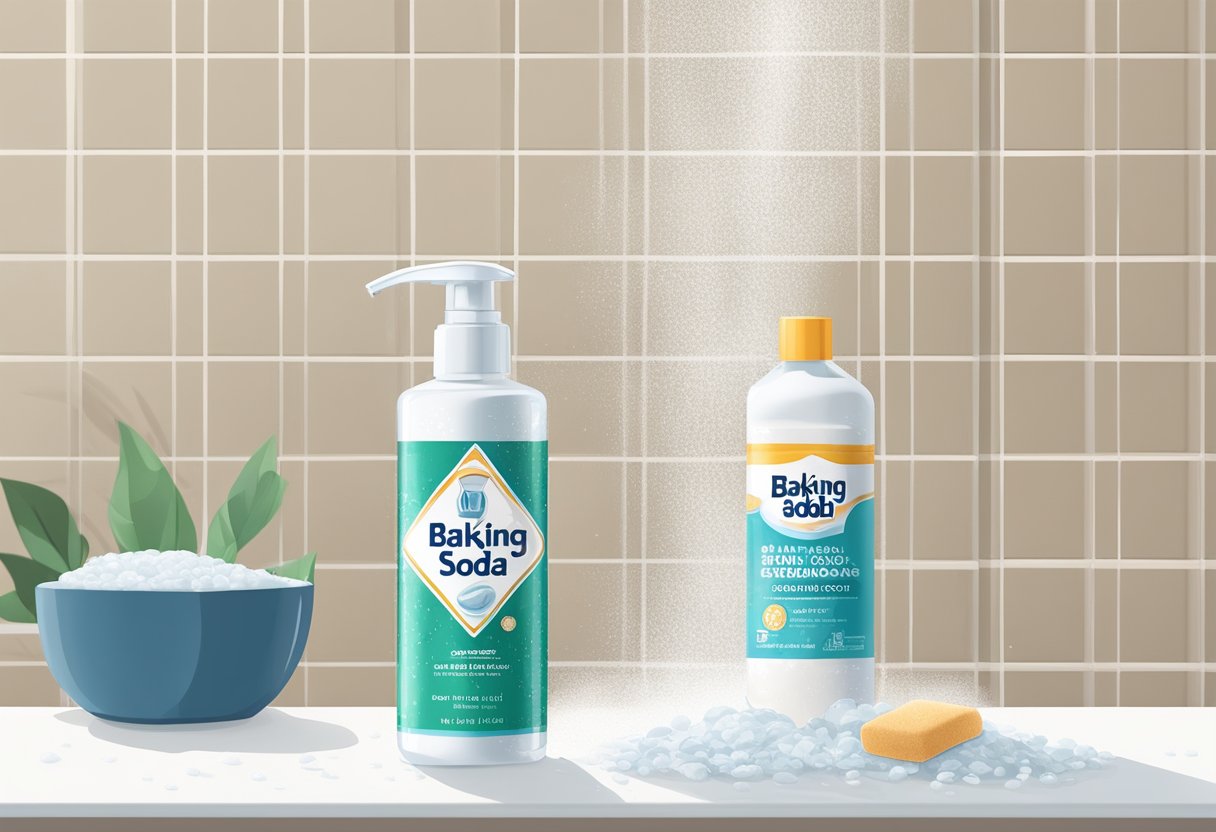
Baking soda is a common household ingredient that has been used for various purposes, including cleaning, baking, and as a natural remedy for different ailments. It has antimicrobial properties that help to reduce the growth of fungi and bacteria on the scalp, which can contribute to dandruff. Baking soda also has exfoliating properties that help to remove dead skin cells from the scalp, which can reduce flaking.
Using baking soda to treat dandruff is easy and can be done in various ways. Some people mix baking soda with water to create a paste and apply it directly to the scalp, while others mix it with their shampoo. However, it is essential to use baking soda in moderation and not to leave it on the scalp for too long, as it can be drying and cause further irritation.
Understanding Dandruff

Dandruff is a common scalp condition that affects people of all ages. It is characterized by the presence of white or yellowish flakes on the scalp and hair. Dandruff can be caused by a variety of factors, including dry skin, oily skin, fungal infections, and certain medical conditions.
The exact cause of dandruff is not fully understood, but it is thought to be related to the overgrowth of a type of yeast called Malassezia. This yeast is normally present on the scalp, but when it grows out of control, it can cause skin cells to shed more quickly, leading to the formation of dandruff flakes.
There are several factors that can contribute to the development of dandruff, including:
- Dry skin: When the scalp becomes dry and flaky, it can lead to the formation of dandruff flakes.
- Oily skin: Excess oil on the scalp can create an environment that is conducive to the growth of Malassezia yeast.
- Poor hygiene: Not washing the hair and scalp regularly can lead to the buildup of dead skin cells and oil, which can contribute to dandruff.
- Certain medical conditions: Dandruff can be a symptom of certain medical conditions, such as psoriasis, eczema, and Parkinson’s disease.
While dandruff is not a serious condition, it can be embarrassing and uncomfortable. Fortunately, there are several treatments available that can help to reduce the symptoms of dandruff and improve the overall health of the scalp. One of these treatments is the use of baking soda.
Benefits of Baking Soda for Dandruff
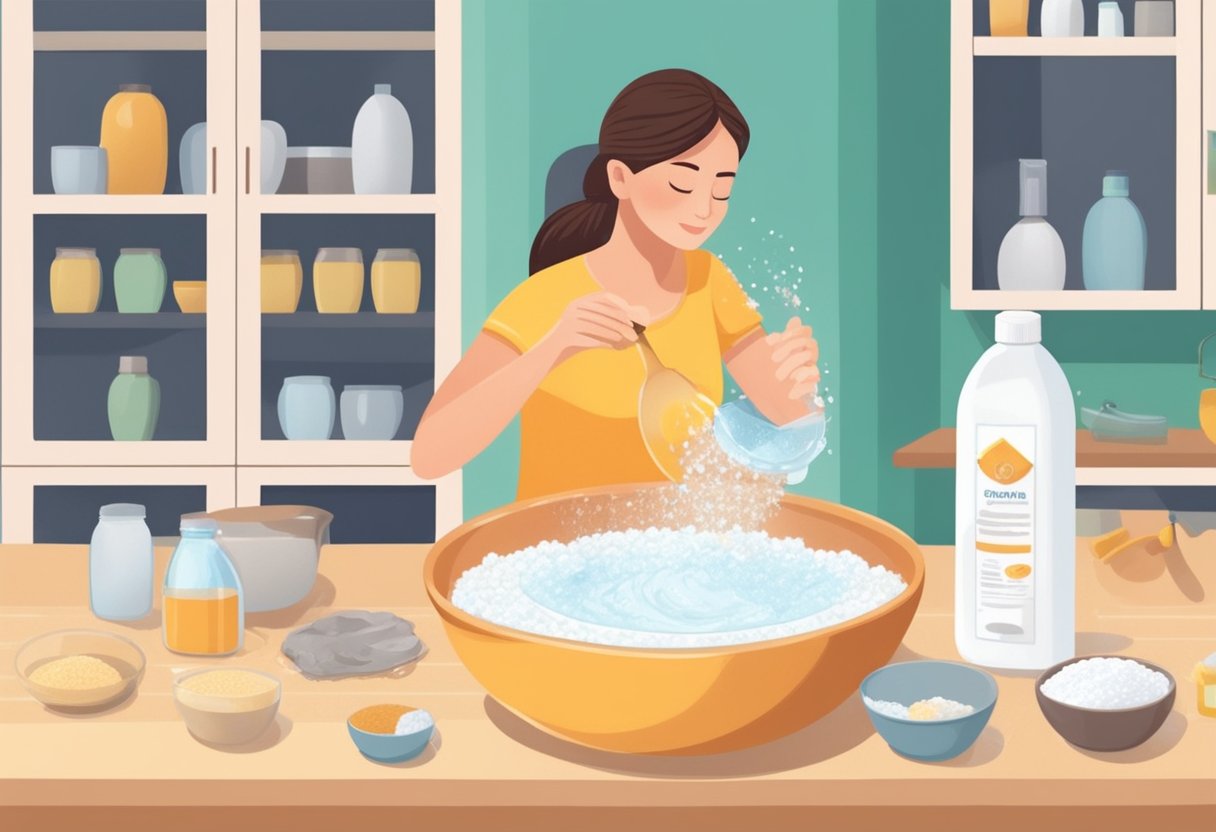
Baking soda is a common household ingredient that can be used to treat dandruff. It has several benefits that make it an effective remedy for this condition. Here are some of the benefits of using baking soda for dandruff:
1. Exfoliates the Scalp
Baking soda has natural exfoliating properties that help to remove dead skin cells and other impurities from the scalp. This helps to unclog hair follicles and promote healthy hair growth. By exfoliating the scalp, baking soda also helps to reduce the buildup of dandruff flakes.
2. Controls Oil Production
Baking soda helps to balance the pH levels of the scalp, which in turn helps to control the production of oil. This is important because excess oil can contribute to the development of dandruff. By controlling oil production, baking soda helps to prevent dandruff from forming in the first place.
3. Soothes Itching and Irritation
Dandruff can cause itching and irritation on the scalp, which can be uncomfortable and distracting. Baking soda has anti-inflammatory properties that help to soothe the scalp and reduce itching and irritation. This makes it an effective remedy for dandruff-related discomfort.
4. Safe and Affordable
Baking soda is a safe and affordable remedy for dandruff. It is easily available at most grocery stores and can be used without any side effects. Unlike medicated shampoos, baking soda does not contain any harsh chemicals that can damage the hair or scalp.
Overall, baking soda is a natural and effective remedy for dandruff. Its exfoliating properties, oil-controlling abilities, and anti-inflammatory properties make it an ideal choice for those looking for a safe and affordable way to treat dandruff.
Preparing to Use Baking Soda

Before using baking soda to treat dandruff, there are a few things that one should keep in mind. Here are some tips to help you prepare for using baking soda:
1. Choose the right type of baking soda
When using baking soda to treat dandruff, it is important to choose the right type of baking soda. While most baking soda is the same, some brands may have added ingredients that could be harmful to the scalp. It is best to choose a pure, unscented baking soda.
2. Test the baking soda on a small patch of skin
Before using baking soda on the scalp, it is important to test it on a small patch of skin. This will help to determine if the baking soda causes any irritation or allergic reactions. Apply a small amount of baking soda paste to the inside of the wrist and wait for a few minutes. If there is no reaction, it is safe to use on the scalp.
3. Mix the baking soda with the right ingredients
Baking soda can be mixed with different ingredients to create a paste that can effectively treat dandruff. Some of the ingredients that can be mixed with baking soda include:
- Rosewater: Mix baking soda and rosewater to make a paste.
- Lemon juice: Mix baking soda and lemon juice to make a paste.
- Apple cider vinegar: Mix baking soda and apple cider vinegar to make a paste.
4. Apply the baking soda paste to the scalp
Once the baking soda paste is ready, apply it to the scalp. Gently massage the paste into the scalp for 2-3 minutes. Leave the paste on the scalp for 10-15 minutes. Rinse the hair and scalp with cool water.
By following these tips, one can effectively use baking soda to treat dandruff. However, it is important to note that baking soda should not be used excessively as it can cause dryness and irritation to the scalp.
Application Methods
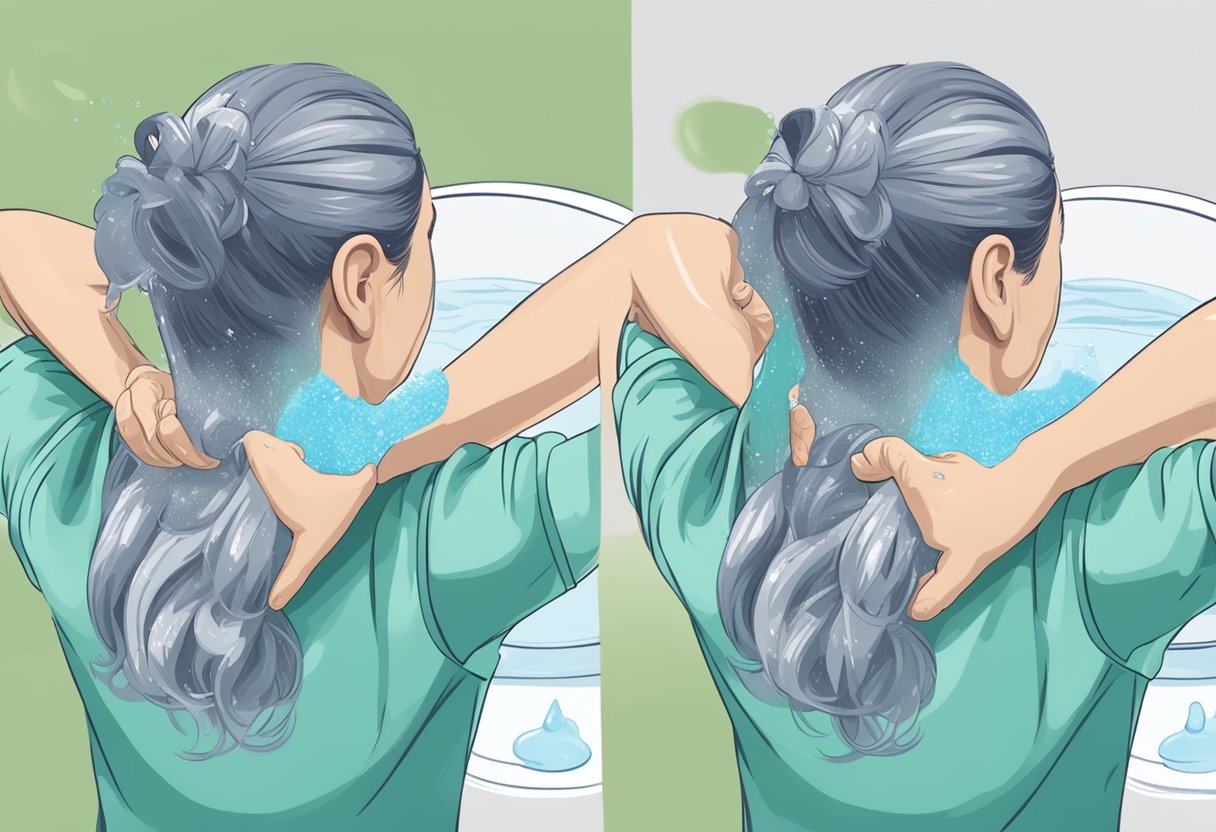
Direct Application
One of the easiest ways to use baking soda for dandruff is by applying it directly to the scalp. Start by wetting your hair and scalp with lukewarm water, then apply a handful of baking soda to your scalp. Massage the baking soda into your scalp for a few minutes, focusing on the areas where you have the most dandruff. Rinse your hair thoroughly with water and follow up with a gentle shampoo and conditioner.
Baking Soda Shampoo Mix
Another way to use baking soda for dandruff is by mixing it with your shampoo. Start by wetting your hair and scalp with lukewarm water, then mix a tablespoon of baking soda with a handful of your favorite shampoo. Massage the mixture into your scalp for a few minutes, then rinse your hair thoroughly with water. Follow up with a gentle conditioner.
Baking Soda and Vinegar Rinse
If you’re looking for a more intensive treatment for dandruff, you can try a baking soda and vinegar rinse. Start by mixing a tablespoon of baking soda with a cup of warm water, then apply the mixture to your scalp and hair. Massage the mixture into your scalp for a few minutes, then rinse your hair thoroughly with water.
Next, mix a tablespoon of apple cider vinegar with a cup of warm water. Pour the mixture over your scalp and hair, making sure to avoid getting it in your eyes. Massage the mixture into your scalp for a few minutes, then rinse your hair thoroughly with water. Follow up with a gentle conditioner.
It’s important to note that while baking soda can be an effective treatment for dandruff, it’s not recommended for daily use. Overuse of baking soda can lead to dryness and irritation of the scalp. It’s best to use baking soda treatments no more than once a week, and to follow up with a gentle shampoo and conditioner.
Frequency of Use
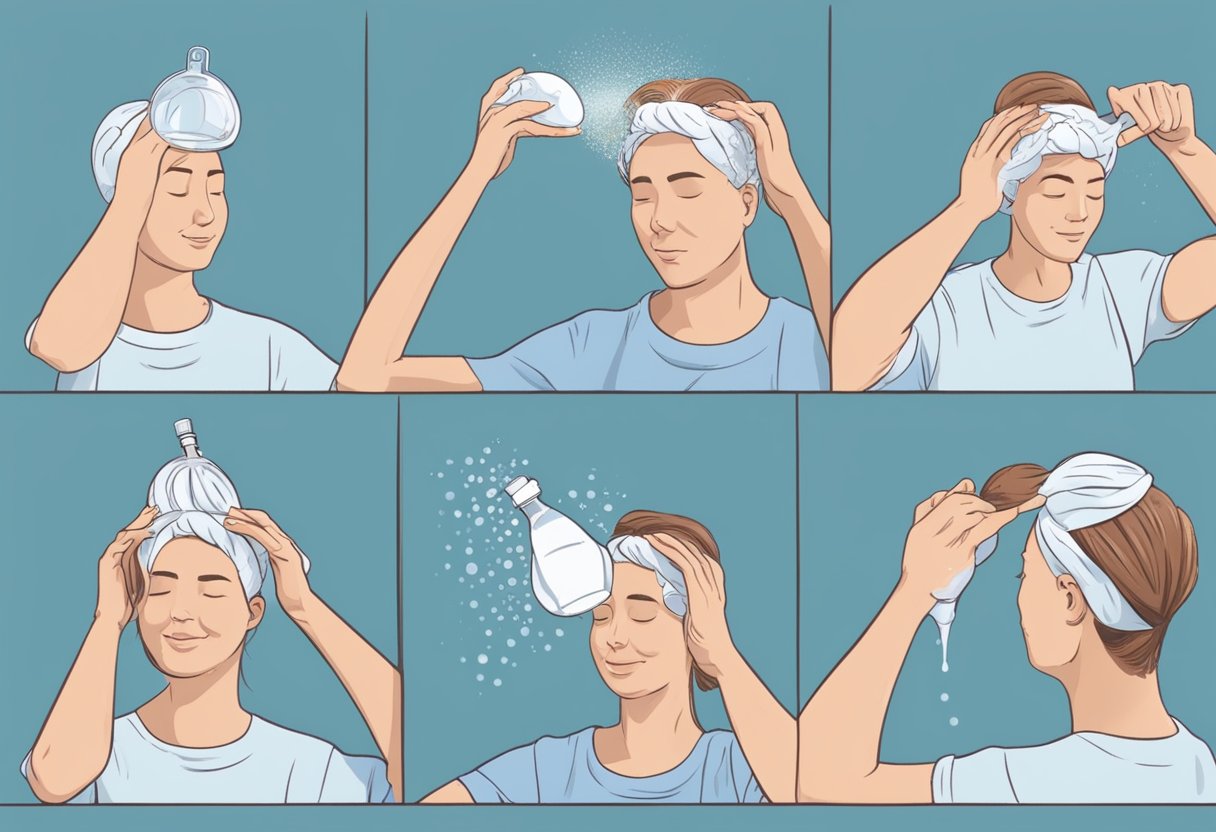
While baking soda is an effective dandruff treatment, it’s important to use it in moderation. Using baking soda too frequently can dry out the scalp and cause irritation.
It’s recommended to use baking soda for dandruff once a week. This will help to exfoliate the scalp and remove excess skin cells without over-drying the skin.
When using baking soda for dandruff, it’s important to mix it with water to create a paste. This will help to dilute the baking soda and prevent it from being too harsh on the scalp.
After applying the paste to the scalp, it’s important to rinse it thoroughly with warm water. Leaving baking soda on the scalp for too long can cause irritation and dryness.
Overall, baking soda can be an effective and affordable solution for dandruff. However, it’s important to use it in moderation and follow the recommended frequency of use.
Aftercare and Moisturizing
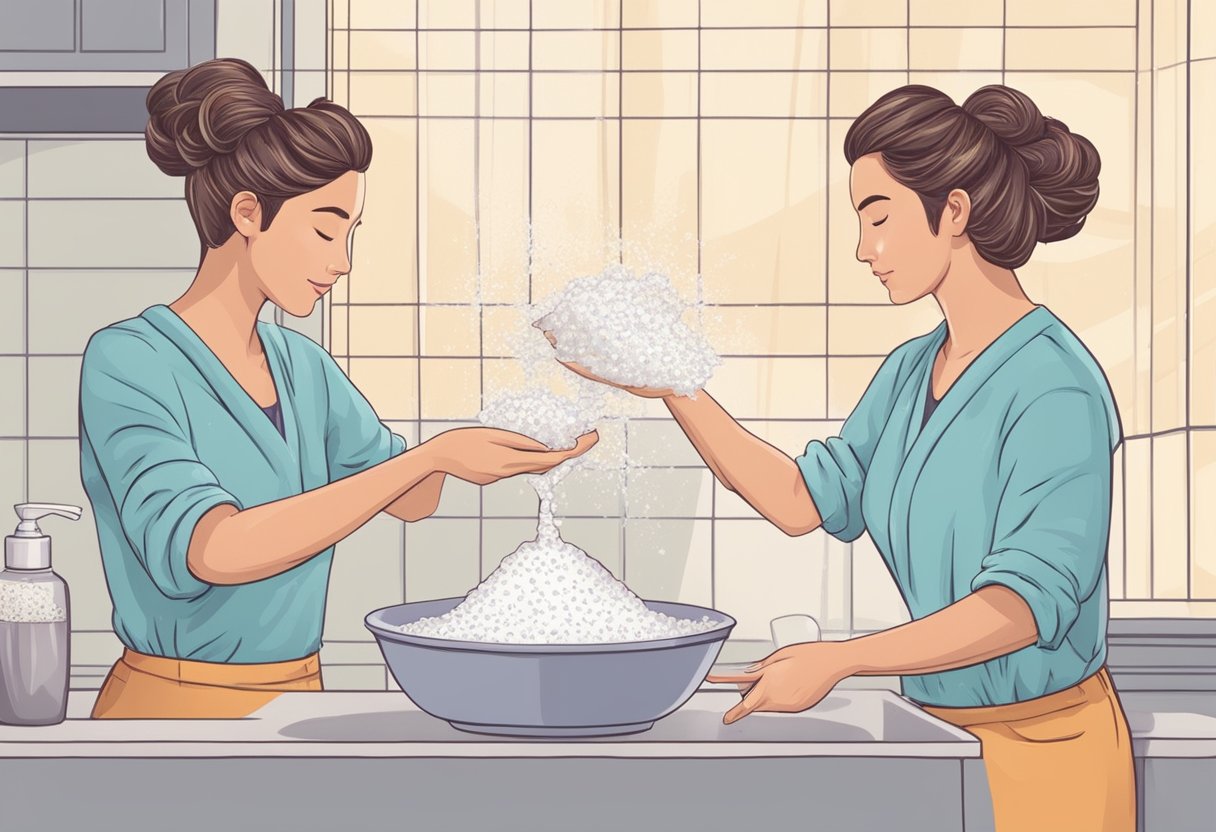
While baking soda can be an effective remedy for dandruff, it is important to take proper care of your scalp and hair after using it. Here are some tips for aftercare and moisturizing:
-
Rinse thoroughly: After using baking soda on your scalp, make sure to rinse your hair thoroughly with cool water. This will help to remove any remaining baking soda and prevent irritation.
-
Use a conditioner: Baking soda can be drying to your hair, so it is important to use a conditioner after using it. Look for a conditioner that is moisturizing and gentle on your scalp.
-
Avoid overuse: While baking soda can be effective in treating dandruff, it should not be used too frequently. Overuse can cause dryness and irritation. Use it once or twice a week at most.
-
Consider a scalp treatment: If you have persistent dandruff, consider using a scalp treatment that contains ingredients like tea tree oil, which has antifungal properties and can help to soothe the scalp.
-
Stay hydrated: Drinking plenty of water and maintaining a healthy diet can help to keep your scalp and hair healthy and hydrated.
By following these tips, you can help to maintain a healthy scalp and prevent dandruff from recurring.
Potential Side Effects
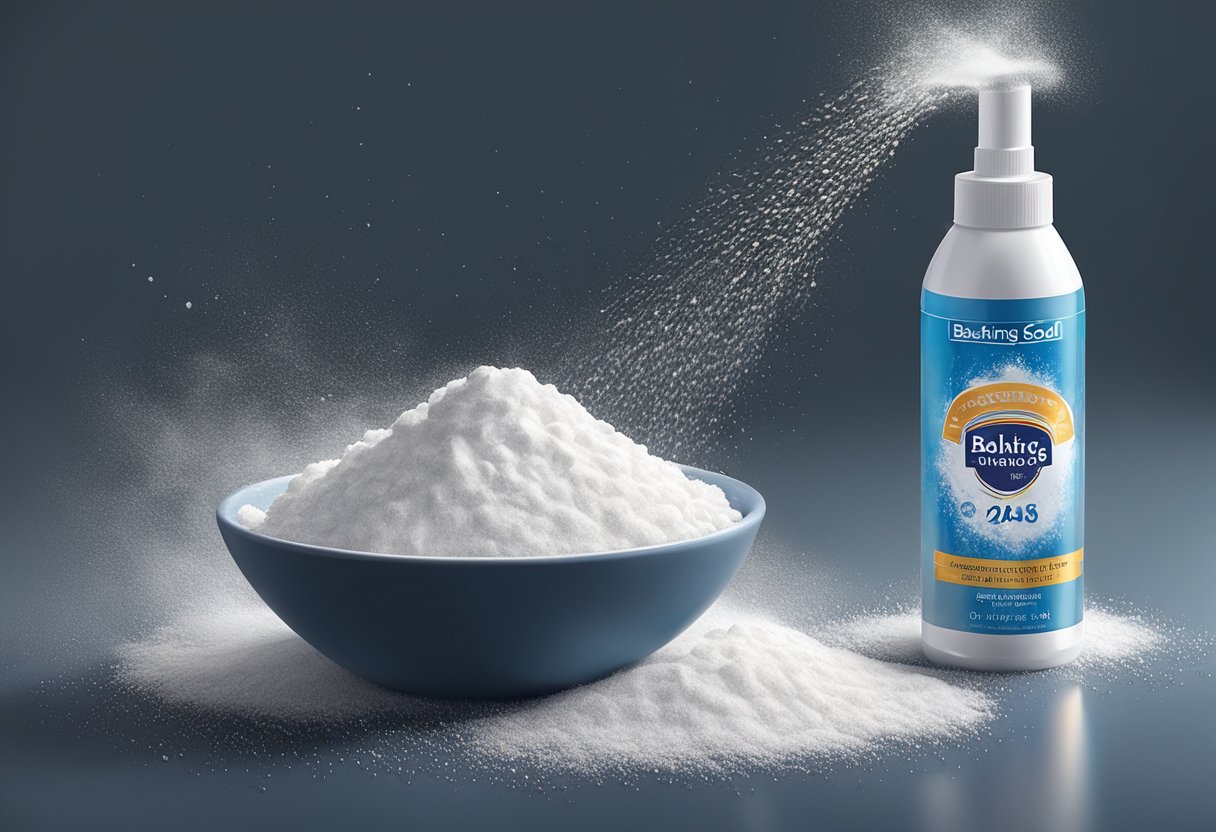
While baking soda is generally safe to use on the scalp, it can cause some side effects in certain individuals. Here are some potential side effects to keep in mind:
Scalp Irritation
Baking soda is alkaline in nature, which means it can disrupt the natural pH balance of the scalp. This can cause irritation, redness, and itching. To avoid this, it’s important to dilute the baking soda with water or mix it with other ingredients such as coconut oil or aloe vera gel before applying it to the scalp.
Dryness
Baking soda can be drying to the scalp, which can exacerbate dandruff in some cases. To prevent this, it’s important to moisturize the scalp with a natural oil such as coconut oil or olive oil after using baking soda.
Allergic Reactions
Some individuals may be allergic to baking soda, which can cause a range of symptoms such as hives, itching, and swelling. If you experience any of these symptoms after using baking soda on your scalp, discontinue use immediately and seek medical attention if necessary.
Sensitivity to Light
Baking soda can make the skin more sensitive to sunlight, which can increase the risk of sunburn and skin damage. To avoid this, it’s important to avoid prolonged sun exposure after using baking soda on the scalp.
Overall, while baking soda can be an effective remedy for dandruff, it’s important to use it safely and with caution. If you experience any adverse reactions, discontinue use immediately and consult with a healthcare professional.
Frequently Asked Questions

What are the potential side effects of using baking soda for dandruff treatment?
Baking soda is generally safe to use for dandruff treatment. However, using too much baking soda or using it too frequently can cause dryness and irritation. It is recommended to use baking soda in moderation and to always dilute it with water or other ingredients before applying it to the scalp.
Can a mixture of baking soda and vinegar effectively treat dandruff?
While some people claim that a mixture of baking soda and vinegar can effectively treat dandruff, there is no scientific evidence to support this claim. In fact, using vinegar on the scalp can further disrupt the pH balance and cause irritation. It is best to stick to using baking soda alone or in combination with other proven natural remedies.
How should baking soda be applied to the hair to combat dandruff?
To use baking soda for dandruff treatment, mix it with water to create a paste. Apply the paste to the scalp and massage gently for a few minutes before rinsing it off with water. It is important to thoroughly rinse the hair to avoid any residue that may cause dryness or irritation. Baking soda can be used once or twice a week as part of a regular hair care routine.
How does combining baking soda with coconut oil benefit dandruff-prone scalps?
Coconut oil has moisturizing properties that can help soothe dry and itchy scalps, which are common symptoms of dandruff. When combined with baking soda, it can help exfoliate the scalp and remove dead skin cells. The combination of these two ingredients can help reduce dandruff and promote healthy hair growth.
In comparison, which has a more potent effect on dandruff, lemon or baking soda?
Both lemon and baking soda have natural antifungal and antibacterial properties that can help combat dandruff. However, using lemon on the scalp can cause dryness and irritation, especially if it is not diluted properly. Baking soda is generally a safer and more effective option for dandruff treatment.
